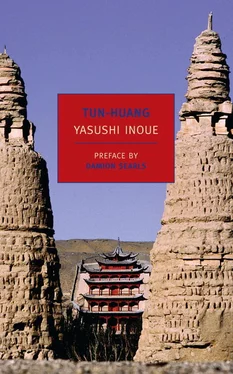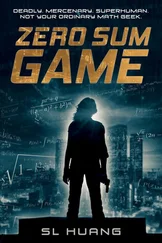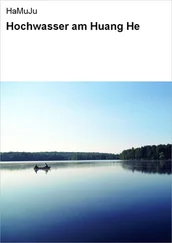“Make smoke signals with wolf manure,” Wang-li ordered. When he realized that Wang-li had spoken to him, Hsing-te dismounted. They were at a clearing by the city wall near the East Gate. A path led to the top of the wall, where he could see a round building resembling a beacon tower.
Hsing-te took a bundle of wolf manure from a soldier and went up the wall. It was twenty feet high. From the top he got a panoramic view of the vast plains surrounding Kan-chou.
“Get down!” Wang-li shouted to him from below, but Hsing-te would not lie down to take cover. His fear of death had completely vanished. At first, the beacon tower had seemed small, but now that Hsing-te had climbed up the wall, he discovered that it was quite large — about thirty feet high — and a ladder had been placed there to reach the tower platform.
Hsing-te climbed up the ladder. Wang-li and the others below dwindled in size. The beacon tower was two-storied; on the lower level was a small room large enough to hold two or three persons; it housed an enormous drum. Hsing-te climbed another ladder from that room to the upper level. When he had gone several rungs up and half-emerged on the upper level, he suddenly tensed. He saw a young girl crouching on the beacon platform. Her aquiline nose was framed by a thin face, and her dark, frightened eyes were deep-set. Instinctively, Hsing-te knew that the girl was of mixed Chinese and Uighur blood. She wore a garment with narrow sleeves, open collar, and pleated skirt. At a glance he could tell that she was of high birth.
Before he set foot on the platform, Hsing-te said reassuringly in Chinese, “There’s no need to worry. I won’t hurt you.” Then he repeated the same words in Uighur. Whether she understood or not, the young girl made no response and continued to eye him fearfully.
Hsing-te placed the wolf manure on the platform and set fire to it. Immediately the stench filled the air and black smoke began to rise from the beacon tower. When the dark smoke formed a straight column and began to drift slowly upward, without changing its shape, Hsing-te set another pile of manure alight. He repeated this until five columns were rising, signalling to the distant main army and other forces outside that the vanguard occupied the city. When he had completed his task, Hsing-te turned to the girl and said, “There’s nothing to worry about. Stay where you are. I’ll come to get you later and take you to a safer place.”
“Are you the daughter of a tradesman?” Hsing-te questioned her in Chinese again. Apparently she understood, for she shook her head slightly.
“Is your father an official?” he asked.
Again she moved her head. Hsing-te’s attention was drawn to the two necklaces around the girl’s neck.
“Are you of royal birth?” She would not answer, but gazed silently at Hsing-te. “Who is your father?”
In reply she whispered, “The king’s younger brother.”
“The king?”
Hsing-te looked at her with renewed interest. If her father was the king’s brother, was she then of royal lineage? Leaving the girl there, Hsing-te descended the tower to the city wall, and then down to a corner of the square where Wang-li and the other soldiers were gathered.
“You were the first to enter the city; you were at the head of the search patrol; and you accomplished the great mission of making smoke signals at considerable risk to yourself. One of these days I may recommend you for promotion as commander of thirty men,” said Wang-li to the only survivor of his original unit.
They waited there for the other units to join them in the city. Wang-li ordered five men to look for wine, then sent another five to search the nearby homes in case women were hidden inside. Hsing-te sat down on a rock, and from time to time looked up toward the beacon tower where the young girl was. He wondered what he should do with her, but he could come to no decision. He finally reached the conclusion that he had no choice but to tell Wang-li about the girl and seek his help in protecting her. But Hsing-te knew little about the man’s character except that Wang-li had expressed affection for him and was of matchless courage in the front lines.
A moment later a group of three thousand soldiers, who had been waiting outside, began to enter the garrison. After quarters had been assigned, the men had time to spend as they wished, their first chance in days. They roamed around the abandoned town like starving wolves. When they found women’s clothing, they put them on over their uniforms; when they found wine jugs, they smashed them open and drank gustily, spilling wine all over themselves.
As the darkness enveloped the town, however, the confusion gradually subsided. Hsing-te had remained by the city wall directly under the beacon tower from noon until nightfall, leaving briefly only once. He had stood guard to prevent any loiterer from going up the wall.
The one time he had left his post was to locate a hiding-place for the royal maiden. He entered many houses in the vicinity, searching for a suitable place. Next to a relatively large house he found a hut, apparently a food store, in which there was a cellar large enough to hold two or three people. He decided that this was just the place for the girl to hide, and he took a mattress and blankets into the cellar.
Late that night Hsing-te slipped out of the temple, which had been assigned as quarters for the fifty men of the suicide squad who had entered the city. High above, thousands of stars studded the sky, but the night was so dark that Hsing-te could barely see beyond his feet.
He took some time to reach where he had stood that afternoon, and from there he groped his way up the city wall. When he reached the top, he could see hundreds of campfires scattered over the plain outside. The Hsi-hsia main army was probably camping there. Although he thought he would be able to pick out the movement of men and horses reflected in the glare of the campfires, only the flickering of flames was visible. The areas between the fires were buried in darkness, and there was no sign of any living creature in the shadows.
Hsing-te went up to the upper level of the beacon tower. It was pitch black and he couldn’t make out the girl’s figure clearly, but she appeared to be lying down, crouched in the same position as that afternoon.
He told her to come down with him so he could take her to a safe hiding-place. But the girl lay still and did not move. Finally, however, she spoke to him in Chinese in her penetrating voice telling him that she was no longer afraid to die. Hsing-te took this as a warning: she was uncertain of his friendship, and he was trying to spirit her away somewhere. Again ordering the girl to follow him, Hsing-te started down the ladder. Shortly after, she followed. His eyes had become accustomed to the dark by this time, and he could dimly make out the girl’s figure. She was much taller than he had expected.
He forbade her to speak, and ordered her not to stir from his side under any circumstances. Then, leaving the vast plain with its scattered campfires behind, he slowly descended the city wall, groping for each rung of the ladder.
The woman’s stealthy footsteps followed immediately behind those of Hsing-te. He cut across the square, went down the road, turned two corners, and then entered the mud-wall-ed enclosure of the house he had discovered that afternoon. Beyond the wall was a large front garden. From there, Hsing-te made the girl go in front of him toward the house and the hut.
When they reached the door of the hut, Hsing-te urged the girl to enter, but she stood there hesitating. It was pitch black inside. Hsing-te handed her his own evening ration of noodles and onions and told her to go to the cellar of the hut at dawn, when she could see her surroundings. Then he said he would leave, since he felt that she would not go in as long as he remained. In contrast to the scorching heat of the day, the night air was bitterly cold. Hsing-te had brought some bedding into the cellar for the woman, but he felt that she was not likely to use it that night. She would probably find somewhere else to sleep. This was all he could do, and he quickly left the hut.
Читать дальше












